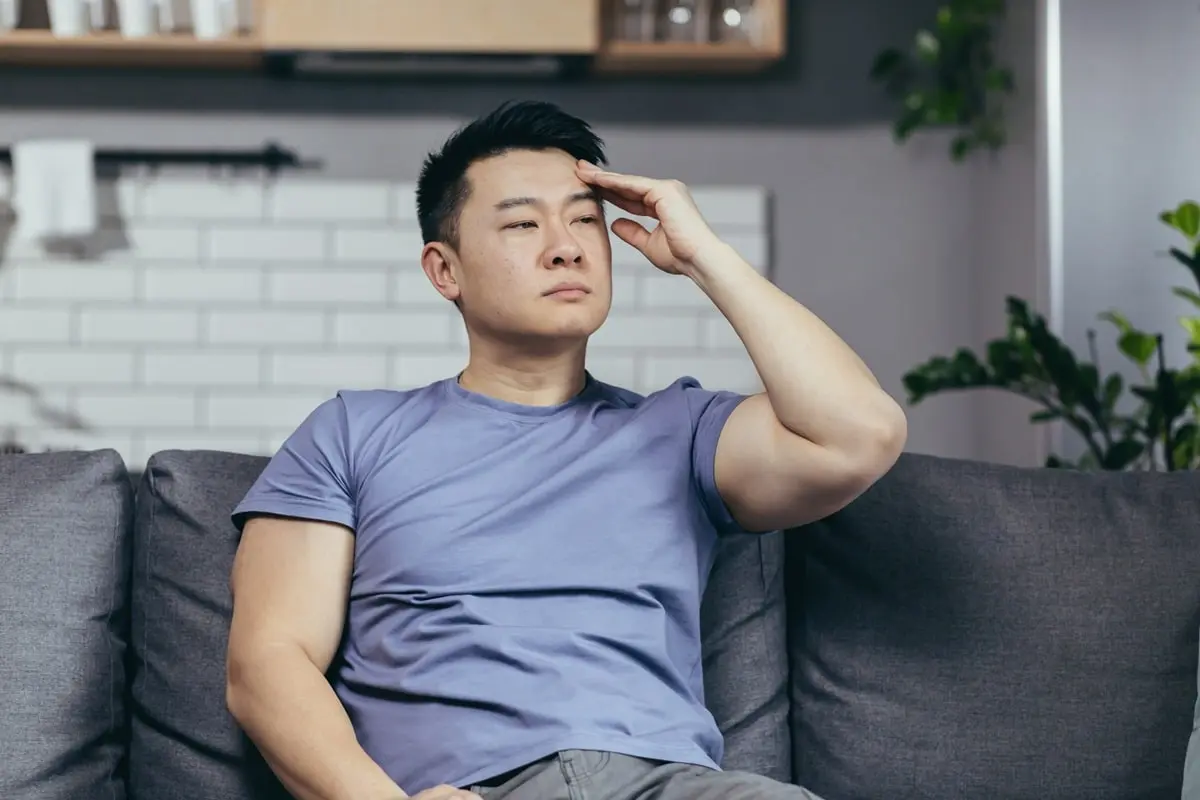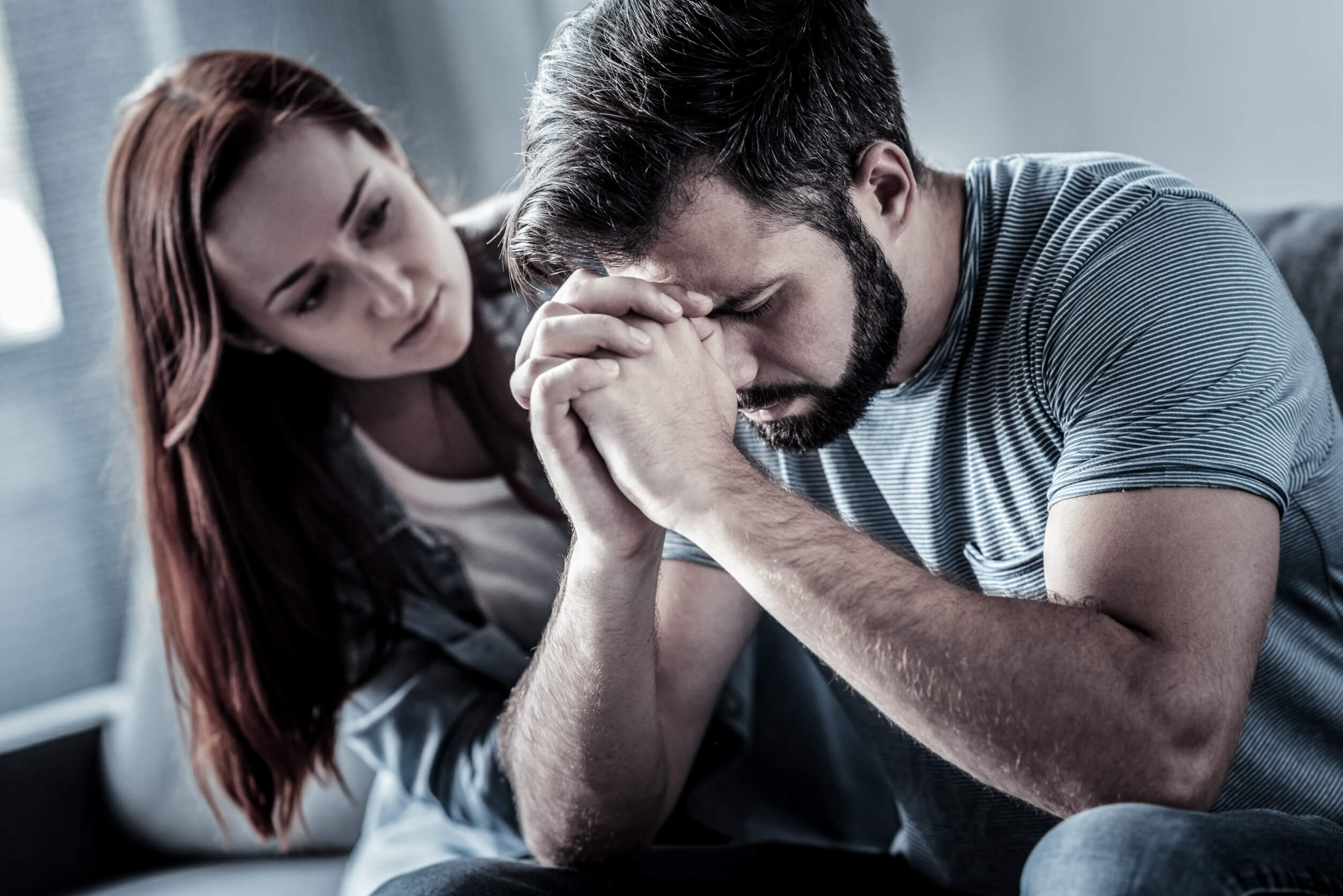It’s not uncommon to have a passing thought about your boyfriend’s or girlfriend’s sexual orientation. If questions like “is my boyfriend gay” take over, it may be a sign of obsessive-compulsive disorder.
It’s natural to have doubts sometimes about our romantic relationships. It happens all the time. But what if you can’t stop trying to figure out whether your boyfriend or girlfriend is gay?
If you’re straight, it’s scary to think that you’re with someone who’s gay and hasn’t realized it yet. Lots of people take a long time to realize their sexual orientation, right? Maybe your boyfriend or girlfriend is just in the early part of this process. How can you tell?
Could This Be OCD?
For some people, the doubt and anxiety they experience around this topic rise to the level of obsessiveness.
Obsessions are a hallmark symptom of obsessive-compulsive disorder (OCD). They typically take the form of an upsetting or scary thought that causes significant anxiety.
Sometimes in OCD, obsessions center on thoughts about one’s own sexual orientation; this is a sub-type of OCD known as HOCD.
Less frequently, HOCD presents with a twist – the obsession is about whether one’s boyfriend, girlfriend or spouse is gay. Googling is a common compulsion for this type of obsession, and it makes things worse.
It’s not uncommon for people with this type of OCD to watch their partner like a hawk, searching for signs that they’re secretly gay. This often leads to significant strife in relationships. In these cases, finding “evidence” of one’s partner’s latent homosexuality becomes a private hobby — one that takes up a lot of time and leads to a lot of unhappiness.
How to Know if This Type of OCD Is a Problem For You
Warning signs include:
- checking your boyrfriend’s/girlfriend’s phone without permission for “incriminating” evidence
- paying close attention to your partner’s level of physiological arousal, or to any possible signs of disinterest, during sex
- scrutinizing his or her level of engagement with activities stereotypical for a straight vs gay person
- drawing conclusions about sexual orientation from mundane choices he or she makes, like what to eat or drink
How to Handle Repeated Thoughts like “Is My Boyfriend Gay?”
Most advice you’ll get from others when you ask them, “is my boyfriend/girlfriend gay?” will be to “trust your gut.” In other words, if you have doubts, then there’s probably a reason for that. Unfortunately, this only feeds the concern and the obsessions.
“Trusting your gut” is one way to answer your concerns (though not one we recommend if you have OCD). There are others, however — some healthy, some not:
Seeking Reassurance
When you’re concerned about your partner’s sexual orientation and you don’t want to upset them, one popular solution is to find a clue or some proof that they’re straight or gay. This is often a very appealing and available option.
Unfortunately, this approach only worsens the problem (through a process called negative reinforcement). Each time you find some reassurance, and the anxiety goes away, it makes you more dependent on this strategy to cope with that anxiety. For this reason, seeking reassurance is an unhealthy choice.
Confrontation
The mother of all efforts to obtain reassurance is when one directly confronts the boyfriend or girlfriend. This usually involves saying things like “I think you’re gay, I’ve been observing these tendencies for a long time!” in the hopes that he or she will talk you out of the belief. Intense feelings are usually produced by this strategy, of course. Relationships can be damaged or ended. Some call this a “nuclear option.”
Confrontation will typically produce feelings of alienation and resentment from the partner. So the reassurance that the person with OCD obtains is at an extremely high cost. When you consider the temporary nature of the relief, it calls into question the wisdom of confrontation as a strategy.
So what does help?
Tolerating Uncertainty
Practicing your ability to not seek answers to your questions about your partner’s sexual orientation. It’s hard! But living with that uncertainty for as long as you can do it is the healthiest choice you can make. It’s good for the relationship, and it will help you weaken your OCD. And each time you do it, you’re making it easier for you to do the next time.
This strategy works by undermining the very foundation of OCD – difficulty tolerating uncertainty. If you’re able to improve at this skill, you’ll find yourself feeling more and more comfortable when doubts arise about your partner’s sexual orientation.
If you think that your concerns about your boyfriend’s or girlfriend’s sexual orientation have turned into OCD, feel free to contact us to arrange a consultation.









